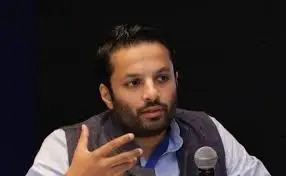SC agrees to hear plea against arrest of Ashoka University prof Ali Khan Mahmudabad over Op Sindoor remarks

The Supreme Court of India has agreed to hear a plea challenging the arrest of Professor Ali Khan Mahmudabad. He is a political science faculty member at Ashoka University. This arrest relates to his remarks about Operation Sindoor, a recent military operation. The case has sparked a debate between protecting free speech and addressing sensitivities around national security.
Background: Arrest and Controversy
On May 18, 2025, Professor Mahmudabad was arrested following a complaint from Renu Bhatia, chairperson of the Haryana State Women’s Commission. She accused him of insulting women in the Indian armed forces through his social media posts. Consequently, the police acted on the complaint and arrested him. However, many academics and free speech advocates argue that this arrest is unjust, as his remarks were misunderstood.
Operation Sindoor involved Indian forces targeting terrorist bases across the border. In his post, Mahmudabad praised the Indian Army’s restraint and professionalism during the operation. Notably, he highlighted the symbolic role of women officers who participated in this mission.
What Did He Say?
In his comments, Mahmudabad expressed support for the military effort. He noted that India’s security strategy is evolving. The Indian Army faces new challenges, particularly from Pakistan’s military, which openly supports non-state terrorist groups.
Moreover, he praised the women in the armed forces as powerful symbols of strength and resilience. By condemning violence, he emphasized the importance of measured military action. Mahmudabad viewed Operation Sindoor as a step to safeguard India’s sovereignty while avoiding unnecessary escalation.
Support from Academics and Public
The arrest has caused significant concern among academic circles across India. The Ashoka University Faculty Association labeled the arrest “groundless and politically motivated,” stressing the importance of academic freedom. They insisted that scholars must engage in public debate without fear.
Similarly, the Jawaharlal Nehru University Teachers’ Association (JNUTA) opposed the arrest, calling it “wholly unwarranted.” According to them, this action threatens intellectual freedom. Several scholars and civil rights groups pointed out that Mahmudabad’s remarks did not contain hateful or violent language. Instead, he aimed to clarify India’s military stance and defend the role of women in defense. These groups believe the arrest undermines democratic values and free speech.
Legal Arguments and Supreme Court’s Role
Senior advocate Kapil Sibal, who represents Mahmudabad, filed a plea in the Supreme Court. He seeks to quash the FIR and obtain his client’s release. Sibal argued that the arrest violates constitutional rights, specifically Article 19(1)(a), which guarantees freedom of speech and expression.
Furthermore, he stated that the FIR lacks substantial evidence and is driven by political motives. According to Sibal, Mahmudabad’s statements were patriotic and did not constitute a crime. The Supreme Court’s decision to hear the case underscores its responsibility to protect civil liberties. Legal experts suggest that the ruling could clarify the boundaries of free speech, especially in sensitive matters like national security.
Broader Impact on Free Speech in India
This case has ignited a broader debate about the limits of free speech in India. While respecting the armed forces remains important, many fear that criminalizing critical opinions threatens democracy.
Academics warn that arrests like this create a chilling effect. Intellectuals and journalists may hesitate to speak out freely. Critiquing government policies is essential for a healthy democracy.
Additionally, this case raises questions about the role of social media as a platform for public discourse. The government and courts face the challenge of balancing free expression with preventing misinformation and safeguarding national security.
Voices from Ashoka University and Beyond
The arrest shocked many at Ashoka University. Faculty members asserted that Mahmudabad’s views fall within academic freedom and do not warrant legal action.
Meanwhile, students and civil rights activists organized protests and online campaigns to support the professor. Their message is clear: democracy requires open debate, and people should not fear punishment for expressing responsible opinions.
What’s Next? Supreme Court Hearing
The Supreme Court is set to hear the plea soon, with many watching closely. This case could set an important precedent.
If the court rules in favor of Mahmudabad, it may strengthen free speech protections, especially for academics discussing national issues. On the other hand, if the court upholds the arrest, it might signal stricter limits on speech, potentially discouraging open discussion on public matters.
Conclusion
The arrest of Professor Ali Khan Mahmudabad raises crucial questions about freedom of speech, academic liberty, and dissent in a democracy. The Supreme Court’s forthcoming judgment will play a vital role in shaping India’s future approach to free expression.
In any democracy, people must be free to discuss even sensitive topics without fear. The court’s decision will impact not only Mahmudabad but also countless others who dare to speak out.






